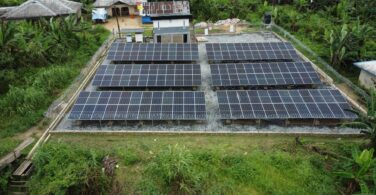The Regenerative Role of Older People in a Circular Economy
Older people could play a crucial role in helping the US and the world in a green recovery from the pandemic.

In the attempt to realize a sustainable economic recovery from COVID-19, there is a need to optimize an untapped resource that’s right in front of us – the regenerative experience of older people. But, rather than attempt to restore the pre-pandemic linear economy, there is an opportunity to accelerate the development of a vibrant and inclusive circular economy instead.
Older entrepreneurs are some of today’s most innovative and collaborative economic engines. Fueled by their experience, which is also their competitive advantage, they are stimulating enormous job growth by building new start-up businesses and transforming traditional businesses into environmentally sustainable businesses faster than any other demographic worldwide. A study by Nesta also shows that five years after starting up, 70 per cent of ventures established by older entrepreneurs are still in operation, compared to just 28 per cent of enterprises launched by their younger counterparts.
Innovation is much more than having an idea. It is recognizing the value of that idea and operationalizing it by developing and deploying effective solutions to challenging, and often systemic, social, economic and environmental issues. Indeed, studies by the National Bureau of Economic Research demonstrate that older entrepreneurs are as innovative as their younger counterparts.
Entrepreneurship is a mindset, and contrary to the image of an entrepreneur as a tech-savvy youth in a hoodie working in their garage, the Kauffman Index of Start-up Activity found that the highest rate of entrepreneurial activity in the US over the past 15 years was among the 55 to 64 age group.
In addition, research at the Global Institute for Experienced Entrepreneurship has found that an overwhelming number of older entrepreneurs are creating green businesses, in the hope of creating a more sustainable environment for their families. A retired, California businessman, for example, launched his first venture, PulpWorks Inc, at the age of 66. Old enough to remember a world with a lot less plastic, he was appalled by the prediction that by mid-century, the oceans will contain more plastic waste than fish and he set out to do something about it, teaming up with a young scientist with a background in green design. Bridging generations and their different experiences, they jointly launched PulpWorks Inc to tackle the global plastic pollution crisis, developing products from garbage to replace plastic packaging – such as PVC and Styrofoam – with biodegradable, 100 per cent water-based, molded, fibre products. Their company has since received more than 20 national and international environmental innovation awards.
In a circular economy, the opportunity is at hand to transfer knowledge across generations and thereby foster dynamic decision-making. When knowledge flows in both directions it increases solution-driven ideas in the workplace. Nuttin’Ordinary, a plant-based cheese company is another example of a successful, intergenerational green business start-up where two young entrepreneurs collaborated with experienced local business leaders to help operationalize their fledgling business. Today, the company produces New England’s first 100 per cent plant-based cheese and can be found in major grocery stores across the US.
In a broader, and deeply transformative, turning point for the US and the world, President Joe Biden, the oldest president in US history, is committed to not just reversing the gravest environmental damages of the Trump administration but also to accelerating new climate regulations through a whole-of-government and society approach.
He has formed the Climate Innovation Working Group, an ambitious initiative to spur the creation of new businesses, jobs, technology and tools that will empower the US to innovate and drive public and private investment in green business.
This cross-sector, intergenerational knowledge-sharing, built on a diversity of ideas and experience – and an entrepreneurial mindset to activate it – represents a re-generative solutions-engine that can stimulate green growth with a global impact.
In today’s world of extended longevity, it is important to stop measuring aging in linear terms that sees obsolescence as the end point, and this applies to both the circular economy, and people. Rather, as UN Secretary-General, António Guterres, said on the 30th anniversary of the International Day of Older Persons, we must find more ways to help older people continue to contribute to the economy because they are key to achieve the Sustainable Development Goals.

